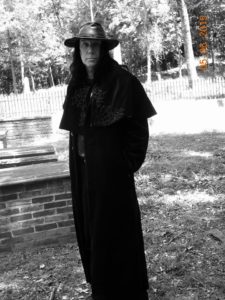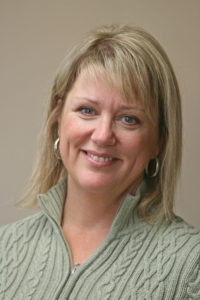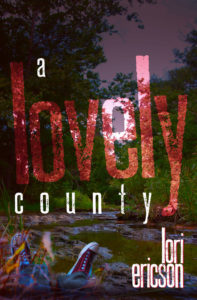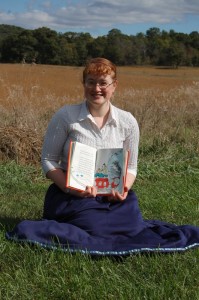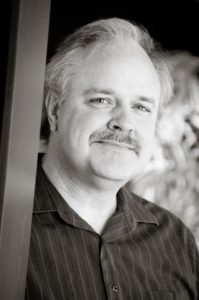 In my continuing series of interviews of other authors, this post features Damon Gray. Damon and I “know” each other from our posts at the Between the Lines blog of the Books & Such literary agency. Truth is, I don’t know all that much about Damon. I’m finding out in his answers. So let’s get to them.
In my continuing series of interviews of other authors, this post features Damon Gray. Damon and I “know” each other from our posts at the Between the Lines blog of the Books & Such literary agency. Truth is, I don’t know all that much about Damon. I’m finding out in his answers. So let’s get to them.Q: You say you share your “own life-experiences, bringing them alongside biblical narratives in a manner that infuses the stories of our spiritual ancestors with life.” How about giving us a brief overview of those life experiences?
That’s a heavy opener, David, but there is no way you could know that. We all speak, write, and interact with others out of our own experiences. It is unavoidable. These experiences figure largely into our world-view, our character, our personality, our tolerances.
I don’t say any of that with bitterness, to sensationalize, or to elicit sympathy from your audience. But experiences like these give us tremendous insight not only into ourselves, but into the total human condition. So if we apply that to the way we approach Biblical texts and narratives, we are sometimes able to crawl inside the heads of those about whom we are reading, right?
Let’s just take the example of Hagar. She is a servant, or a slave. I get the impression that Hagar did not have much say over what happened to her. Sari, Abram’s wife, seemingly cannot bear him children, so she has Abram conceive a child with her slave, Hagar. Hagar does indeed conceive, Sari is overcome with jealously and ends up convincing Abram to send Hagar away. It’s brutal!
I have not experienced that specific circumstance, but we all have to be able to draw on our own life-experiences to identify with what is happening inside these people. These are not just stories. These are real men, women, and children who are toiling their way through life just as you are and as I am.
I started playing the trombone in the fifth grade and played all the way through my university years. Then it sat in the closet for a couple of decades until I pulled it out again to play in the horn line with the worship band at church. I majored in music for the first three years in college, but decided I couldn’t easily make a living that way so I changed majors to Mass Communication with an emphasis in Radio Broadcasting and Newsprint.
For me, there are a couple of key components to being able to speak to a crowd. First off, I have to know what I’m talking about. If I don’t know my subject, then it is best to just sit down. Secondly, I have to believe in the subject. I cannot speak persuasively about something in which I do not believe. That is why I could never build a career in sales. I cannot sell you something I am not persuaded you really need to have. But it works great for public speaking, because you know that whatever I am addressing is something in which I truly believe.
If those two components are in place, I can speak and teach, and I very much enjoy doing so. I have spoken to groups numbering in the single digits to those numbering in the thousands. It is critical, however, to keep it in perspective. What I mean is that you have to keep it always before you that this is not about you! I keep a quote from Randy Alcorn above my desk that reads, “The greatest danger of notoriety is you start thinking about you. People then exist to serve you, exactly the opposite of what Christ modeled.”
I have formulated a concept within the last couple of years around which I am building my ministry. I call it “Long-View Living in a Short-View World.” As believers, we must keep that eternal perspective in focus as we reach out to a world that can barely see beyond the end of its own nose. This has to be about Jesus and his eternal kingdom, and moving that kingdom forward.
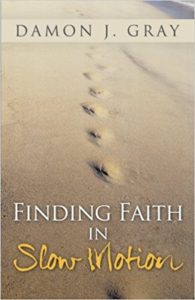
Q: Your first book is Finding Faith in Slow Motion. Tell us about it.
That was never really intended to be a book, but rather it was my own personal research project. My dearest friend had been diagnosed with leukemia, and has since passed on to be with Jesus. It was gut-wrenching watching this disease relentlessly attack his body. At the time we were wracking our brains trying to figure out why he wasn’t being healed of this disease. I mean James tells us, “Is any one of you sick? He should call the elders of the church to pray over him and anoint him with oil in the name of the Lord. And the prayer offered in faith will make the sick person well; the Lord will raise him up.”
Well, we did that – more the once. We prayed over my friend, anointing him with oil, pleading with God to eradicate this disease – and he didn’t – at least not in the sense that I wanted and expected. That’s where the research project began. I wanted to figure out why my friend wasn’t being healed of this cruel disease. And the more deeply I dug into it the more I realized I needed to wrap my mind around the most basic concept of faith.
Those notes sat on my shelf for several years, and it is my wife who eventually persuaded me to publish it, saying, “Damon, you can’t keep this to yourself. You have to share this.” So, I self-published that 2013.
The Christ Saturated Life is an idea I started toying with as I pondered Jesus’ parable in Matthew 12. He talks about an unclean spirit that left a man and traveled through waterless areas looking for a place to rest, but found no such resting place. So the spirit returned to the man it just left, referring to the man as a house. The house had been swept clean and it was in order, but it was left empty. So the spirit, called seven of its spirit comrades, spirits more evil than itself, and the eight of them took up residence within the man. That’s a nasty state to be in!
The driving premise for me is that the man left a void within himself, and a void demands to be filled. We have to fill ourselves with something, but what? So I began contemplating the idea of being completely filled with the mind of the living Christ. I were completely saturated with Christ, filled to the point of overflowing, so much so that he radiated through my pores, what would that look like? How would that change the man I am today? I assure you, David, the Christ Saturated Life does not look like me, and that’s okay. With the ideal in front of me, at the very least, I know which way to walk. I know that toward which I am striving. I can see the target.
The manuscript is draft-complete, and I am in active discussions with a handful of agents who are considering representing it. I don’t know when it will be released. I am learning that the wheels of traditional publishing turn very slowly.
I do have some ideas in the wings (there’s a drama reference for you), but in reality, you have more books actually published than I have ideas for manuscripts!
I’m chewing on one that I’m tentatively calling Swan Song of the Messiah. There is this myth that a swan will sing a song just prior to its death, so this will be a look at the statements Jesus made from the cross.
Another one I’m contemplating is based on Acts 2:42 where the new disciples devoted themselves to four specific things – The apostles’ teaching, the fellowship, the breaking of bread, and prayer. My thought is that there must be something significant about those four devotions if that is what they applied themselves to.
I have been asked to consider writing a book on the believer’s response to sex trafficking in the U.S. One of the most heavily traveled corridors for young girls who have been enslaved in the sex trafficking business runs just a few miles from my home – between Portland, Seattle, and Vancouver, British Columbia. It’s a horrifying reality that is far too easy to turn a blind eye toward. A friend of mine runs a refuge that rescues these young girls and helps them escape that nightmare.




